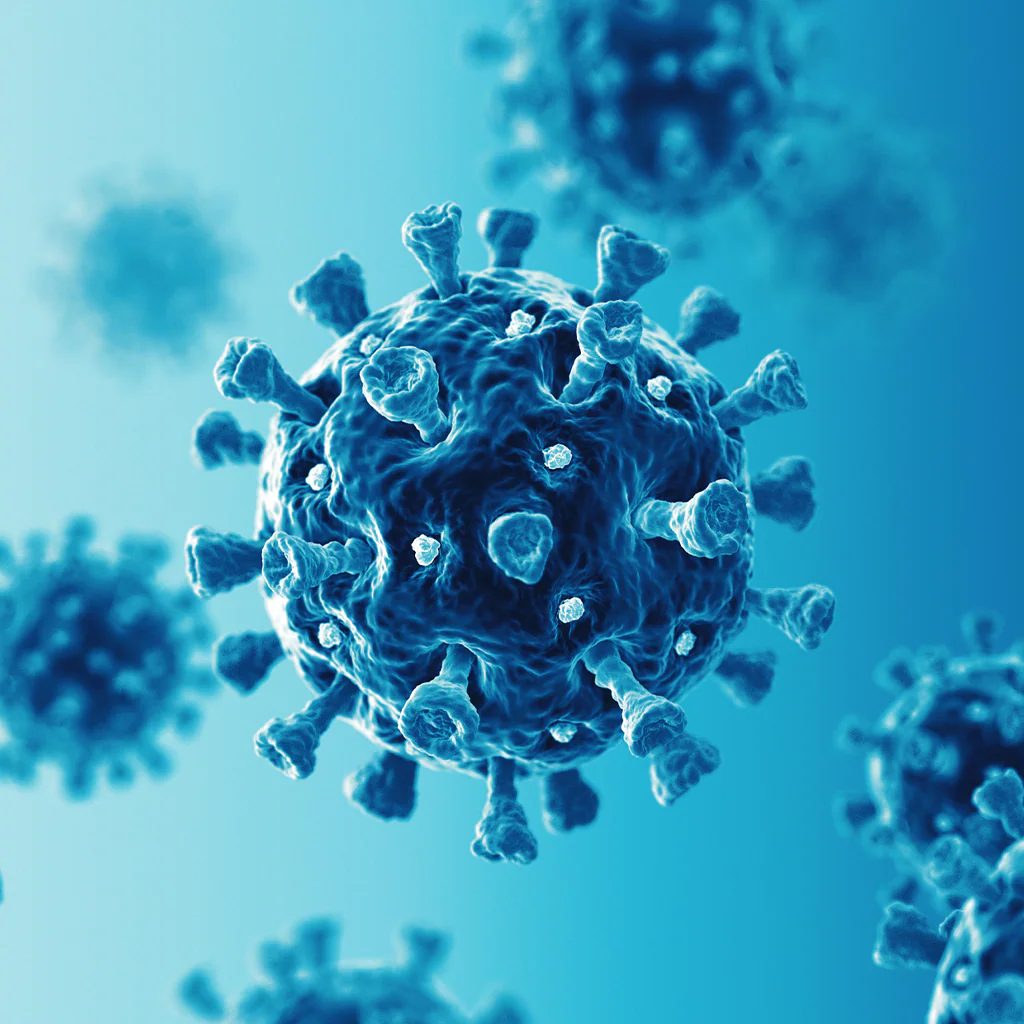What is COVID-19?
COVID-19 is a disease caused by a virus named SARS-CoV-2 that can be very contagious and spread quickly. COVID-19 most often causes respiratory symptoms that can feel like a cold, the flu, or pneumonia. Most people have mild symptoms, but some people can become severely ill.
How does COVID-19 spread?
COVID-19 spreads when an infected person breathes out droplets and very small particles containing the virus, which can be breathed in by other people or land on their eyes, noses, or mouths.

What are the symptoms of COVID-19?
A wide range of symptoms from mild to severe illness. Symptoms may appear 2-14 days after exposure to the virus.
Symptoms can vary by person and may change with new COVID-19 strains. Anyone infected with COVID-19 can spread it, even if they do NOT have symptoms.
Symptoms include:
- Fever or chills
- Cough
- Shortness of breath or difficulty breathing
- Fatigue
- Muscle or body aches
- New loss of taste or smell
- Sore throat
- Congestion or runny nose
- Nausea or vomiting
- Diarrhea
Treatment and Prevention of COVID-19
Staying up to date with COVID-19 vaccines and basic health and hygiene practices like handwashing can help with prevention.
See the current COVID-19 cases and where to go for testing
Use TAPI & Partners COVID-19 Messaging Toolkits
Learn How to Talk to Family and Friends about the Vaccine
Get Answers to Your Vaccine Questions – Get the facts about COVID-19 vaccines – Mayo Clinic
